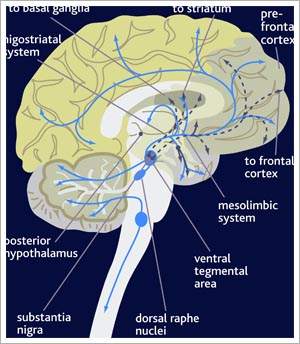How traffic jam in brain leads to schizophrenia
 Washington, Aug 11 : Researchers from Northwestern University Feinberg School of Medicine have found that low levels of protein required for maintaining constant contact between brain neurons might cause schizophrenia.
Washington, Aug 11 : Researchers from Northwestern University Feinberg School of Medicine have found that low levels of protein required for maintaining constant contact between brain neurons might cause schizophrenia.
Schizophrenia is a severe mental disorder that results in hallucinations, memory loss and social withdrawal.
The study over genetically engineered mouse showed that disease symptoms are triggered by a low level of a brain protein necessary for neurons to talk to one another.
In human and mouse brains, kalirin protein helps in building a dense network of highways, called dendritic spines, which allow information to flow from one neuron to another.
The findings revealed that without adequate kalirin, the frontal cortex of the brain of a person with schizophrenia only has a few narrow roads.
The information from neurons gets jammed up like rush hour traffic on an interstate highway squeezed to a single lane.
"Without enough pathways, the information takes much longer to travel between neurons and much of it will never arrive," said Peter Penzes, assistant professor of physiology at the Feinberg School.
Penzes discovered the kalirin effect after he created the mouse model, which was the first to have a low level of kalirin and the first to develop symptoms of schizophrenia as an adolescent.
This mimics the delayed onset of the disease in humans. In normal development, the brain ramp up the production of kalirin as it begins to mature in adolescence.
"This discovery opens a new direction for treating the devastating cognitive symptoms of schizophrenia," Penzes said.
"There is currently no treatment for that. It suggests that if you can stimulate and amplify the activity of the protein kalirin that remains in the brain, perhaps we can help the symptoms," he added.
The findings are published in the Proceedings of the National Academy of Science. (ANI)